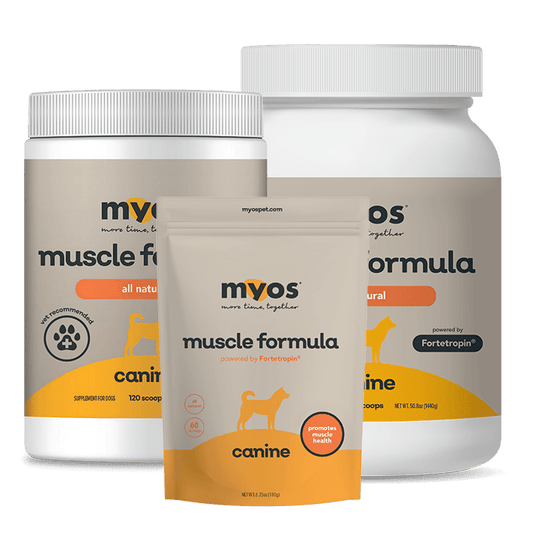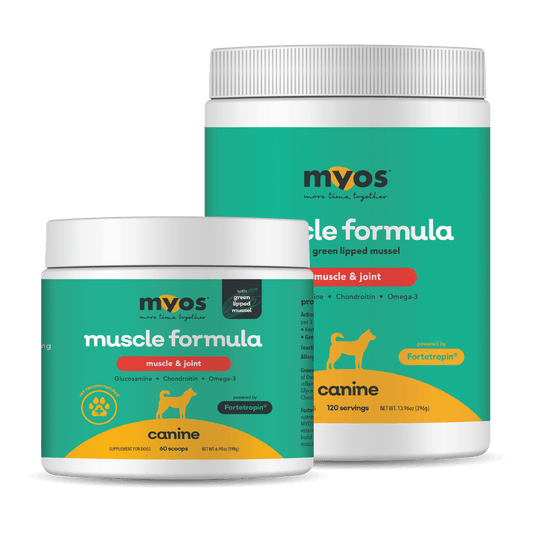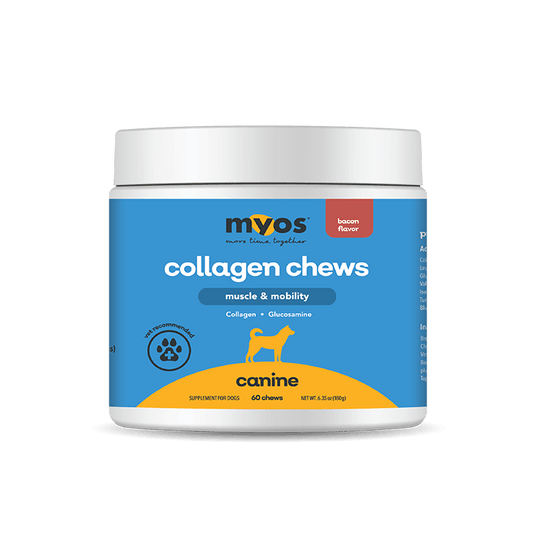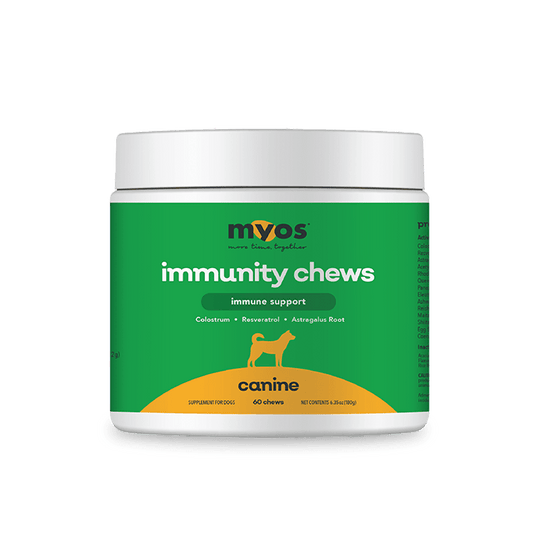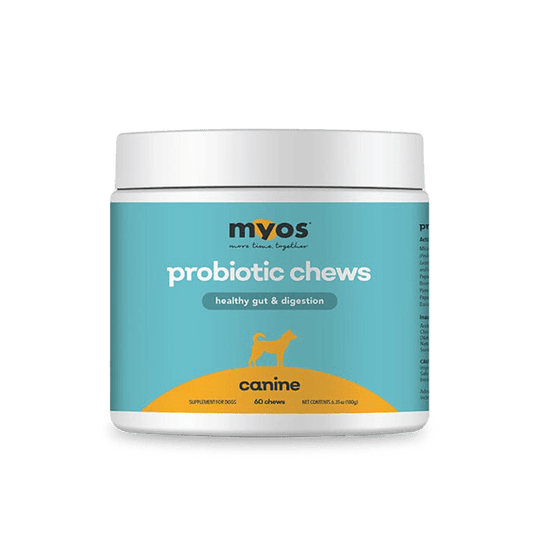
Muscle atrophy in dogs is the wasting or loss of the dog’s muscle tissue. It often occurs in the legs, particularly the hind legs, although it can show up in other areas of the body. The condition can occur for a variety of reasons, including these top five.
Natural Aging
Common signs of aging in dogs include weakening muscles. Along with this, your senior dog will begin losing muscle tissue. This condition is called Sarcopenia where muscle mass and muscle tone of the dog will inevitably wane. In such cases, canine muscle atrophy isn’t so much a worrisome health condition as it is a part of the natural process of the dog aging.
Weight Gain
While weight gain is more probable in old age, today more veterinarians are seeing young dogs suffering from the nutritional disease known as pet obesity. Obesity in dogs can cause them to start losing muscle tissue.
The heavier the dog, the more likely they are to develop a multitude of illnesses and conditions, including muscle atrophy. Excessive weight can put a damper on your dog’s general mental and physical health as well as strain their joints, which over the years, could lead to more severe issues, such as arthritis.
Arthritis
Arthritis may become an issue for any dog, but it’s most common in large breeds who tend to bear more weight on their joints, slowly deteriorating them over time.
While muscle atrophy affects the dog's muscles and arthritis affects the joints, they can be related because the painful strain caused by weakening joints ultimately leads to a lack of full range of movement for the dog.
Canine arthritis is known to displace the work of dog's muscles, thus causing some muscles to overcompensate while others are utilized less, if at all. This takes the form of limping and can slowly lead to eventual muscle atrophy in dogs.
Decreased Activity
Many conditions may cause the dog to exercise and move around less. And in a dog that is lacking in daily exercise, muscles will begin to fade as they’re not being purposefully or routinely used. A dog may show a disinterest in playtime or walks for a variety of reasons, both mental and physical.
Dogs might be depressed if they’re left alone at home or in a confined space for much of the day. They could also be responding to stress as resulting from a recent move to a new home, loss of family member, or the introduction of a new pet to the home.
Additionally, physical ailments will cause the dog to refrain from being active. Typically, this will be an injury that makes movement uncomfortable, which will eventually result in progressive muscle atrophy in the dog.
Hip Dysplasia
Another common ailment of senior dogs, and large or overweight dogs, is hip dysplasia, which can also cause muscle loss. The hip joint is made up of the femur and pelvis, and together they create a fluid, ball-in-socket motion, allowing dogs to run and play without any issues. However, with hip dysplasia, this fluid motion is replaced with a grinding which eventually erodes the hip joint.
There are different levels of severity for muscle atrophy in dogs related to hip dysplasia. With some, there may be a shallow hip socket, a semi-displaced femoral head, or a complete dislocation. Often, this condition is inherited or may be part of the genetic make-up of the dog.
Thankfully, no matter the cause of your dog’s muscle loss, there’s a cutting-edge product that can help your dog's muscle health. Veterinarian recommended, Myos Canine Muscle Formula®, is made from an all-natural ingredient, fertilized chicken egg yolks, and is designed to increase muscle mass and size.
If you notice your dog is losing a considerable amount of muscle, you should contact your vet immediately to determine the best course of treatment.

